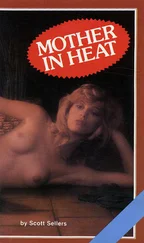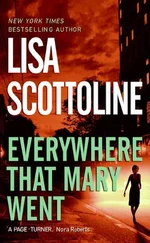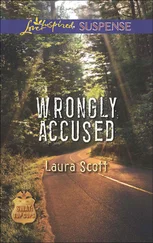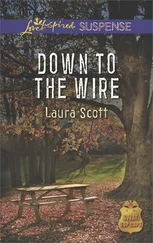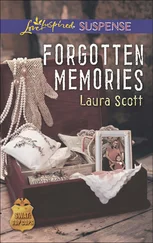Leroy Scott - To Him That Hath
Здесь есть возможность читать онлайн «Leroy Scott - To Him That Hath» — ознакомительный отрывок электронной книги совершенно бесплатно, а после прочтения отрывка купить полную версию. В некоторых случаях можно слушать аудио, скачать через торрент в формате fb2 и присутствует краткое содержание. Жанр: foreign_prose, Зарубежные любовные романы, на английском языке. Описание произведения, (предисловие) а так же отзывы посетителей доступны на портале библиотеки ЛибКат.
- Название:To Him That Hath
- Автор:
- Жанр:
- Год:неизвестен
- ISBN:нет данных
- Рейтинг книги:4 / 5. Голосов: 1
-
Избранное:Добавить в избранное
- Отзывы:
-
Ваша оценка:
- 80
- 1
- 2
- 3
- 4
- 5
To Him That Hath: краткое содержание, описание и аннотация
Предлагаем к чтению аннотацию, описание, краткое содержание или предисловие (зависит от того, что написал сам автор книги «To Him That Hath»). Если вы не нашли необходимую информацию о книге — напишите в комментариях, мы постараемся отыскать её.
To Him That Hath — читать онлайн ознакомительный отрывок
Ниже представлен текст книги, разбитый по страницам. Система сохранения места последней прочитанной страницы, позволяет с удобством читать онлайн бесплатно книгу «To Him That Hath», без необходимости каждый раз заново искать на чём Вы остановились. Поставьте закладку, и сможете в любой момент перейти на страницу, на которой закончили чтение.
Интервал:
Закладка:
"It's hardly possible," returned Dr. Thorn. "Mr. Aldrich has been in the study almost constantly."
Mr. Haddon's eyes fastened on David; a quick gleam came into them. David, unnerved as he was, could not keep his face from twitching.
There was a long silence. Then Mr. Haddon asked quietly:
"Could you have been in the safe, Mr. Aldrich?"
David did not recognise whither the question led. "Why, yes," he said mechanically.
Mr. Haddon held out the slip of paper. "According to this memorandum in Mr. Morton's hand, the money was in the safe the day before his death." His eyes screwed into David. "Perhaps you can suggest to us what became of the money."
David stared at him blankly.
"The money – was there – when Morton died!" said Dr. Thorn amazedly. He looked from one man to the other. Then understanding came into his face, and a great relief. "You mean – Mr. Aldrich – took it?"
"I took it!" David repeated stupidly.
He turned slowly to Helen. Her white face, with its wide eyes and parted lips, and the sudden look of fear she held upon him, cleared his head, made him see where he was.
"I did not take the money!" he cried.
"No, of course not," returned Mr. Haddon grimly. "But who did?"
"If I'd taken it, wouldn't I have disappeared? Would I have been such a fool as to have stayed here to be caught?"
"If the thief had run away, that would have fastened the guilt on him at once. To remain here, hoping to throw suspicion on Mr. Morton – this was the cleverest course."
"I did not take the money!" David cried desperately. "It's a lie!"
Helen moved to David's side, and gazed straight into Mr. Haddon's accusing face. Indignation was replacing her astoundment; her cheeks were tingeing with red.
"What, would you condemn a man upon mere guess-work!" she cried. "Merely because the money is not there, is that proof that Mr. Aldrich took it? Do you call this justice, Mr. Haddon?"
Mr. Haddon's look did not alter, and he did not reply. The opinion of womankind he had ever considered negligible.
Helen turned to David and gave him her hand. "I believe you."
He thanked her with a look.
"It must have been Mr. Morton," she said.
Her words first thrilled him. Then suddenly they rang out as a knell. If he threw off the guilt, it must fall on Morton; if Morton were publicly guilty, then the hundreds of the Mission —
Mr. Haddon's hard voice broke in, changeless belief in its tone: "Mr. Aldrich took it."
David looked at Mr. Haddon, looked whitely at Helen. And then the great Thought was conceived, struggled dizzily, painfully, into birth. He stood shivering, awed, before it…
He slowly turned and walked to a window and gazed down into the street, filled with children hurrying home from school. The Thought spoke to him in vivid flashes. He had no relatives, almost no friends. He loved Helen Chambers; but he was nobody and a beggar. He had not done anything – perhaps could never do anything – and even if he did, his work would probably be of little worth. He had wanted his life to be of service; had wanted to sell it, as it were, for the largest good he could perform. Well, here were the people of St. Christopher's toppling over the edge of destruction. Here was his Great Bargain – the chance to sell his life for the highest price.
As to what he had done with the five thousand, which of course he'd be asked – well, an evening of gambling would be a sufficient explanation.
He turned about.
"Well?" said Mr. Haddon.
David avoided Helen's look. He felt himself borne upward to the apex of life.
"Yes … I took it," he said.
BOOK II
THE CLOSED ROAD
CHAPTER I
DAVID RE-ENTERS THE WORLD
The history of the next four years of David's life is contained in the daily programme of Croton Prison. At six o'clock the rising gong sounded; David rolled out of his iron cot, washed himself at the faucet in his cell, and got into his striped trousers and striped jacket. At six-thirty he lock-stepped, with a long line of fellows, to a breakfast of hash, bread and coffee. At seven he marched to shoe factory or foundry, where he laboured till twelve, when the programme called him to dinner. At one he marched back to work; at half-past five he marched to his cell, where his supper of bread and coffee was thrust in to him through a wicket. He read or paced up and down till nine, when the going out of his light sent him into his iron cot. Multiply this by fifteen hundred and the product is David's prison life.
It would be untruth to say that a sense of the good he was doing sustained a passionate happiness in David through all these years. Moments of exaltation were rare; they were the sun-blooming peaks in an expanse of life that was otherwise low and gloom-hung. David had always understood that prisons in their object were not only punitive – they were reformative. But all his intelligence could not see any strong influence that tended to rouse and strengthen the inmates' better part. Occasional and perfunctory words from chaplains could not do it. Monotonous work, to which they were lock-stepped, from which they were lock-stepped, and which was directed and performed in the lock-step's deadening spirit, this could not do it. Constant silence, while eating, marching, working, could not do it. The removal for a week of a man's light because he had spoken to a neighbour, this could not do it. Nor could a day's or two days' confinement, on the charge of "shamming" when too ill to work, in an utterly black dungeon on a bit of bread and a few swallows of water.
Rather this routine, these rules, enforced unthinkingly, without sympathy, had an opposite energy. David felt himself being made unintelligent – being made hard, bitter, vindictive – felt himself being dehumanised. One day as he sat at dinner with a couple of hundred mates, silent, signalling for food with upraised fingers, a man and woman who were being escorted about the prison by the warden, came into the room. The woman studied for several minutes these first prisoners she had ever seen – then the dumb rows heard her exclaim: "Why look, – they're human!" To David the discovery was hardly less astonishing. He had been forgetting the fact.
Yes, moments of exaltation were rare. More frequent were the dark times when the callousness and stupidity of some of the regulations enraged him, when the weight of all the walls seemed to lie upon his chest – when he frantically felt he must have light and air, or die; – and he cursed his own foolishness, and would have traded the truth to the people of St. Christopher's for his freedom. Prometheus must often have repented his gift of fire. But the momentum of David's resolve carried him through these black stretches; and during his normal prison mood, which was the restless gloom of all caged animals, his mind was in control and held him to his bargain.
But always there was with him a great fear. Was Morton's memory retaining its potency over the people of St. Christopher's? Were they striving to hold to their old ideals, or were they gradually loosening their grip and slipping back into the old easy ways of improvidence and dissipation? Perhaps, even now, they were entirely back, and his four years had paid for nothing. The long day carrying the liquid iron to the moulds would have been easier, the long night in the black cell would have been calmer, had he had assurance that his sacrifice was fulfilling its aim. But never a word came from St. Christopher's through those heavy walls.
And always he thought of Helen Chambers. He could never forget the stare of her white face when he had acknowledged his guilt, how she had first tried to speak, then turned slowly and walked away. The four walls of his mind were hung with that picture; wherever he turned, he saw it. He had wanted to spring after her and whisper his innocence, but there had flashed up a realisation that his plan was feasible only with a perfect secrecy, and to admit one person to his confidence might be to admit the world. Besides, she might not believe him. So, silent, he had let her walk from the room with his guilt.
Читать дальшеИнтервал:
Закладка:
Похожие книги на «To Him That Hath»
Представляем Вашему вниманию похожие книги на «To Him That Hath» списком для выбора. Мы отобрали схожую по названию и смыслу литературу в надежде предоставить читателям больше вариантов отыскать новые, интересные, ещё непрочитанные произведения.
Обсуждение, отзывы о книге «To Him That Hath» и просто собственные мнения читателей. Оставьте ваши комментарии, напишите, что Вы думаете о произведении, его смысле или главных героях. Укажите что конкретно понравилось, а что нет, и почему Вы так считаете.

